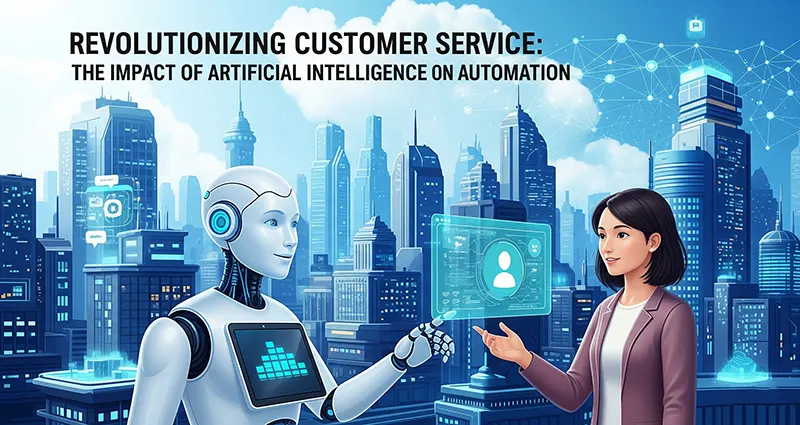Artificial intelligence (AI) has emerged as a game-changer in the realm of customer service automation, revolutionizing the way businesses interact with and support their customers. With the ability to analyze data, interpret customer inquiries, and provide personalized solutions at scale, AI technologies are reshaping customer service processes and enhancing overall customer experience. Let’s delve into how artificial intelligence is transforming customer service automation and redefining the future of customer support.
1. Enhanced Customer Engagement:
AI-powered chatbots and virtual assistants have become instrumental in providing round-the-clock customer support and engaging with customers in real-time. By leveraging natural language processing (NLP) and machine learning algorithms, chatbots can interact with customers, answer queries, and resolve issues efficiently, leading to enhanced engagement and responsiveness. These AI-driven interactions not only streamline customer service operations but also offer personalized experiences tailored to individual preferences.
2. Predictive Analytics for Personalization:
Artificial intelligence enables businesses to leverage predictive analytics to anticipate customer needs and preferences. By analyzing historical data, AI algorithms can predict customer behavior, recommend products or services, and personalize interactions based on individual profiles. This level of personalization not only enhances customer satisfaction but also drives sales and customer loyalty by catering to the unique needs of each customer.
3. Streamlined Ticketing and Issue Resolution:
AI-powered systems can automate ticketing processes and streamline issue resolution by categorizing and prioritizing customer inquiries. Through intelligent routing and escalation mechanisms, AI algorithms can ensure that customer issues are directed to the right department or agent promptly, leading to faster response times and improved service quality. This automated approach to ticket management enhances operational efficiency and minimizes customer wait times, resulting in a seamless customer service experience.
4. Data-Driven Insights and Decision-Making:
Artificial intelligence empowers businesses to extract valuable insights from customer data and make informed decisions to optimize customer service strategies. AI-driven analytics tools can analyze customer feedback, sentiment, and interaction patterns to identify trends, gaps in service, and areas for improvement. By leveraging these data-driven insights, businesses can refine their customer service processes, implement targeted interventions, and continuously enhance the overall customer experience.
5. Proactive Customer Support and Issue Prevention:
AI technologies enable proactive customer support through the identification of potential issues before they escalate. AI algorithms can monitor customer interactions, detect patterns indicating dissatisfaction or unresolved queries, and intervene preemptively to address emerging issues. By taking a proactive approach to customer service, businesses can mitigate potential escalations, minimize customer churn, and foster positive relationships with customers through timely interventions and proactive resolutions.
6. Scalability and Cost-Efficiency:
One of the key advantages of AI-driven customer service automation is its scalability and cost-efficiency. AI-powered chatbots and virtual assistants can handle a large volume of customer inquiries simultaneously, ensuring consistent support across multiple channels without requiring additional human resources. This scalability not only enhances operational efficiency but also reduces costs associated with customer service staffing, training, and infrastructure maintenance, making AI a cost-effective solution for businesses of all sizes.
Artificial intelligence is transforming customer service automation by revolutionizing the way businesses interact with customers, deliver personalized experiences, and streamline service processes. By harnessing the power of AI technologies, businesses can enhance customer engagement, predict customer needs, streamline issue resolution, derive data-driven insights, provide proactive support, and achieve scalability and cost-efficiency in their customer service operations.
As AI continues to advance and evolve, the future of customer service automation holds tremendous potential for innovation, efficiency, and customer-centricity. Embracing AI-driven solutions in customer service automation can empower businesses to elevate their customer experience, drive operational excellence, and stay ahead in an increasingly competitive marketplace. By harnessing the transformative capabilities of artificial intelligence, businesses can unlock new possibilities and redefine the art of customer service for the digital age.









